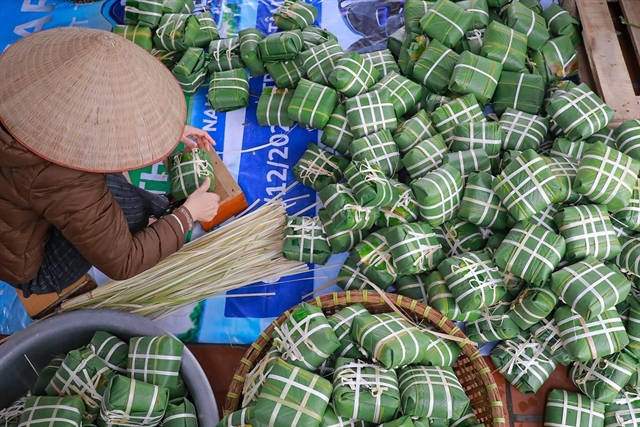 Economy
Economy

Vietnamese companies were currently weak and limited in terms of production capacity and price competitiveness when joining the global value chain.

|
| Workers on a production line at Vietnam Engine and Agricultural Machinery Corporation's factory. The Vietnamese-originated part suppliers are urged to spend more on R&D to improve product quality and raise the localisation rate of local products. — VNA/VNS Photo Trọng Đạt |
HÀ NỘI — Challenges will overwhelm opportunities for Vietnamese part suppliers if they are unable to find ways to upgrade technology and meet international production standards, business executives said on Friday.
The Japanese electronic device producer Canon has a total of 340 part suppliers worldwide and 147 of the total are located in Việt Nam. However, only 20 companies are Vietnamese-originated and that number has remained still for several years.
“The localisation rate of Canon Vietnam products is 65 per cent but it mainly comes from Việt Nam-based foreign direct investment (FDI) suppliers and from our processing factories,” Đào Thị Thu Huyền, senior manager at Canon Vietnam, told a conference on sustainable development for Vietnamese small- and medium-sized enterprises (SMEs).
In the company’s portfolio, 59 spareparts should be produced by local suppliers including complicated, metal components, she said. “But most locally-owned companies focus only on printing, packaging, and plastic and palette production.”
That is the problem with local suppliers that international companies like Canon have to face when setting up their businesses in Việt Nam.
Presenting at the event were Panasonic Vietnam and Samsung Vietnam. Among hundreds of local companies present at the event, only two produce electronic parts for those foreign corporations.
“Local companies are not willing or not mentally strong enough to meet the requirements of the global supply chain,” Huyền said.
It was difficult for local suppliers to meet technical standards set by foreign companies, Nguyễn Anh Tuấn, head of strategy development at Samsung Vietnam, said.
“It is even harder to ask them to upgrade production technology and the factory as they have scarce capital,” he said. “Only 0.2-0.3 per cent of their total revenues is spent on research and development (R&D).”
Meanwhile, other issues that Vietnamese also faced included labour treatment, on-time salary payment, environmental protection, and credit risk management, he warned.
Huyền and Tuấn urged local firms to think beyond the existing foreign companies like Canon and Samsung as there are others with demand for entering Việt Nam.
Domestic suppliers needed to keep progressing, update production methods and explore new business segments that very few companies had found to make their businesses more competitive, they said.
“Confidence is all that matters,” Panasonic Vietnam’s global procurement head Hoàng Thu Thủy said.
“Vietnamese suppliers should be disciplined and they should be committed to the agreements and strive hard to beat the expectation in the short term,” she said.
According to Trần Duy Nhất, CEO of JAT Autoparts and Industry Equipment Production JSC, locally-owned suppliers lack fundamental technologies and raw materials to meet the demand of customers.
They needed technical assistance from both Government and partners to improve product quality and reach international markets’ standards, he said.
“Being a knot of the global value chain, SMEs will see product quality increase, selling price will go up too and they will find the way to resolve financial issues,” Nhất said.
Vietnamese companies were currently weak and limited in terms of production capacity and price competitiveness when joining the global value chain, Nguyễn Chí Dũng, Minister of Planning and Investment, said.
“Large-cap companies and international corporations have their own ecosystem with high standards, so it is hard for domestic firms to enter those systems,” he said.
Local SMEs were unwilling to take risks to further develop because the quality of corporate governance, technology and personnel was limited, he said.
“Local firms are barely capable of capital accumulation, so they hardly spend any of the profits on re-investment into R&D to expand production and product quality.”
Government, ministries and government agencies must assist them to join global value chains while foreign direct investment (FDI) companies should make some room in the market to allow local firms to compete, minister Dũng urged.
Local companies should hasten their digital transformation and digitalisation to raise productivity, production quantity and product quality while corporate and human resource management were also important, he said.
As the world was struggling with the COVID-19 pandemic, Vietnamese firms should look beyond their traditional markets and explore new territories as international corporations were seeking new resources that meet their requirements, Dũng said. — VNS




